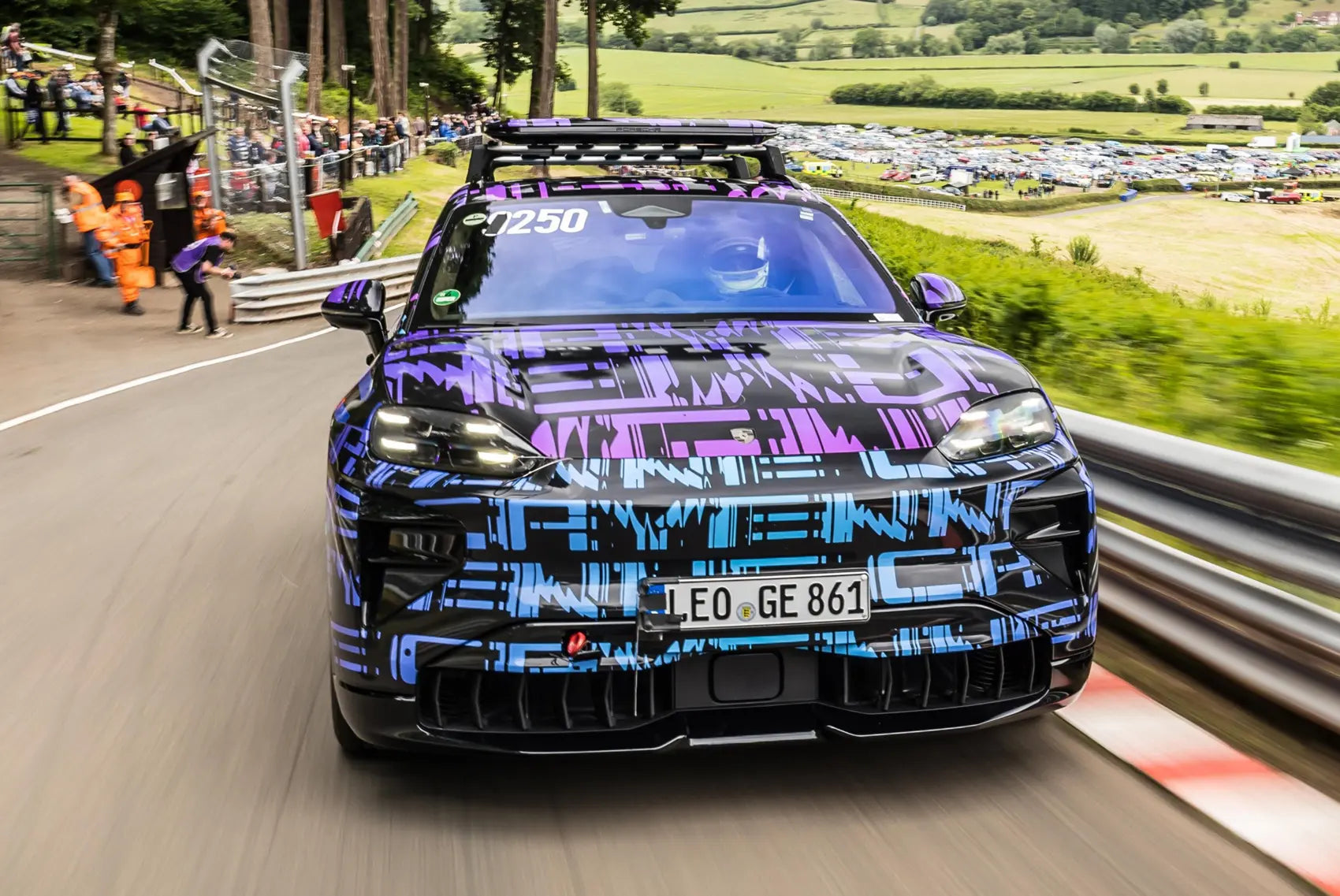Porsches Flaggschiff-SUV wird elektrisch
Porsche bereitet die Markteinführung des ersten elektrischen Cayenne vor – ein Meilenstein für den deutschen Automobilhersteller. Als eines der meistverkauften Fahrzeuge von Porsche weckt der Cayenne EV hohe Erwartungen an Leistung, Luxus und Spitzentechnologie. Jüngste Testfahrten mit dem Prototypen in Spanien haben gezeigt, was das kommende SUV-Flaggschiff leisten kann – und die Zahlen sind beeindruckend.

Ultraschnelle Ladeleistung
Der Cayenne EV basiert auf der 800-Volt-Premium Platform Electric (PPE)-Architektur, die auch der Macan EV und der Audi Q6 e-tron nutzen, und verfügt über eine 108-kWh-Batterie (nutzbar) mit Pouch-Zellen von LG . Seine Reichweite wird voraussichtlich über 600 km (WLTP) liegen, aber das eigentliche Highlight ist das Aufladen: Das SUV unterstützt Schnellladen mit bis zu 400 kW Gleichstrom und ermöglicht unter optimalen Bedingungen eine Aufladung von 10–80 % in nur 16 Minuten .
Zum Vergleich: Der Lucid Air Grand Touring erreicht eine Spitzenleistung von 300 kW, während der Lucid Gravity SUV die 400 kW des Cayenne erreicht – allerdings nur in Verbindung mit einem 1.000-V-Ladegerät. Porsche stattet den Cayenne EV außerdem mit zwei Ladeanschlüssen am Heck aus, was das Anschließen an Stationen mit kürzeren Kabeln erleichtert.
Leistung und Varianten
Drei Versionen sind in der Entwicklung. Jede ist mit einem Doppel-Permanentmagnetmotor ausgestattet – einem von Bosch gelieferten Motor vorn und einem von Porsche gebauten Motor hinten – und verfügt über ein Zweigang-Hinterradgetriebe für maximale Effizienz und Leistung. Alle Modelle sind serienmäßig mit Allradantrieb ausgestattet.
-
Cayenne EV-Basis : 400 PS
-
Cayenne EV S : 600 PS
-
Cayenne EV Turbo : 805 PS
Trotz seines Gewichts von rund 2.700 kg soll der Turbo in weniger als drei Sekunden von 0 auf 100 km/h sprinten und eine Höchstgeschwindigkeit von über 250 km/h erreichen.
Empfohlene Lektüre: Tesla erhöht die Preise für Model S/X mit dem neuen Luxe-Paket um 10.000 US-Dollar
Größe, Federung und Geländegängigkeit
Mit einer Länge von 4,99 Metern ist der Cayenne EV etwas größer als sein Geschwistermodell mit Verbrennungsmotor. Der Radstand von 2,99 Metern sorgt für verbesserte Stabilität. Das SUV ist serienmäßig mit Luftfederung und Doppelventildämpfern ausgestattet, die die Bodenfreiheit je nach Geschwindigkeit und Fahrmodus automatisch anpassen. Ein spezieller Offroad-Modus erhöht die Bodenfreiheit auf maximal 245 mm (9,6 Zoll) und senkt das SUV bei höheren Geschwindigkeiten für eine bessere Aerodynamik um bis zu 30 mm ab.

Marktposition und Zeitplan für die Markteinführung
Anders als der vollelektrische Macan, der sein benzinbetriebenes Pendant schrittweise ersetzen wird, wird der Cayenne EV über Jahre hinweg neben der Verbrennerversion existieren . Porsche plant, im nächsten Jahr mit der Auslieferung zu beginnen und gleichzeitig ein weiteres Facelift für den benzinbetriebenen Cayenne zu präsentieren. Mit unübertroffenen Ladegeschwindigkeiten, beeindruckender Leistung und einer Dual-Market-Strategie entwickelt sich der Cayenne EV zu einem der fortschrittlichsten Elektro-SUVs auf dem Markt.
Empfohlene Lektüre: Porsche überdenkt virtuelle Gangschaltungen für Elektrofahrzeuge nach anfänglichem Widerstand








Aktie:
Trumps Wendung im Handelsabkommen: Könnten einheitliche Standards den amerikanischen Markt für Elektrofahrzeuge umgestalten?
Der neue Volvo XC70: Langstrecken-PHEV mit DC-Schnellladung und V2L